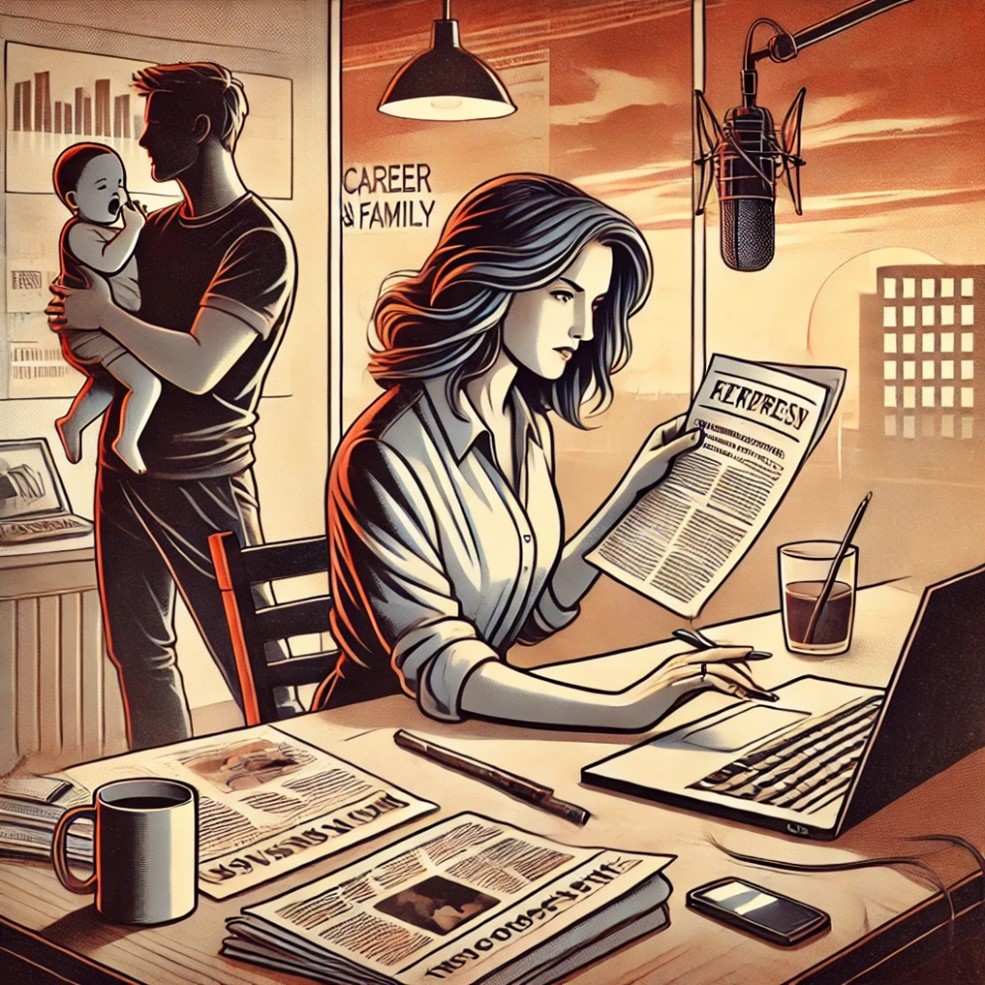
For decades, the relationship between family life and professional careers has been studied through the lens of stability—long hours justified by steady employment, spouses who let their own careers take a backseat to support the other’s ambitions, and the financial rewards that make this arrangement worthwhile. But what happens to this settled relationship between family and career when the profession itself becomes precarious? We explore this issue in our article in Journal of Management Studies.
A Job That Demands Everything, But Promises Little
We asked, “How do people engage their families in their efforts to build careers in professions that are demanding and yet increasingly precarious?”
To find out, we talked to 102 journalists navigating a field that is both demanding and increasingly precarious. Journalism is an industry built on urgency. Reporters are expected to be on call 24/7, ready to chase breaking news at a moment’s notice. Geographic mobility is often required to advance, and long hours are the norm. But unlike other professions—law, finance, or medicine—journalism lacks the financial stability to make these demands sustainable. Wages are low, benefits are scarce, and layoffs are common. Despite these conditions, many journalists stay. Why? The study found that family plays a pivotal role in making the profession viable—but not in the way we expected based on prior research.
Family as an Asset—or a Liability
Our findings challenge conventional wisdom about how families support professionals’ careers, revealing how precarity is reshaping the fundamental relationship between work and family and forcing professionals to develop new strategies for combining career and family. We found that journalists take three distinct approaches to managing the relationship between career and family:
- Prioritizing Career and Drawing on Family. Many journalists rely on family for financial or logistical support. Spouses with stable jobs help cover expenses and provide health insurance. Some live with parents to minimize costs. Others turn to extended family for emotional and financial backing. This group justifies their reliance on family as a necessary trade-off for pursuing meaningful work.
- Prioritizing Career and Forgoing Family Another group embraces a different approach: they minimize or avoid family commitments altogether. They remain single, delay or reject having children, and shape their lives around their jobs. For them, relationships are a liability—something that could hold them back in a career that requires complete devotion and flexibility.
- Prioritizing Family Over Career The third strategy involves pushing back against the profession’s relentless demands. These journalists draw clear boundaries, refusing last-minute assignments or travel that interferes with family time. Some step off the traditional career ladder, opting for lower-profile but more predictable roles. For them, stability at home is worth the professional trade-offs.
A Shift in the Gender’s Role in Work-Family Equation
What makes these findings especially striking is that traditional gender norms play a smaller role than expected. Historically, gender norms have importantly shaped professionals’ approaches to career and family, with men typically prioritizing careers and women prioritizing family life. However, our study shows how in precarious professions, career and family strategies are less gendered. In precarious professions, economic necessity drives flexible career strategies, rather than traditional gender expectations.
The Bigger Picture: The Future of Career and Family in the Professions
Journalism is just one example of a broader shift affecting many professions. As economic precarity seeps into formerly stable careers—academia, creative industries, and even corporate roles—the way professionals navigate work and family is bound to evolve.
For employers and policymakers, this research underscores the urgent need for better labor protections, predictable wages, and flexible work arrangements. Without them, talented professionals may continue to sacrifice either their careers or their personal lives in unsustainable ways.
For individuals, it raises tough questions: How much are we willing to sacrifice for work? And what are we willing to give up for family? Is career success still about climbing a ladder, or is it about learning to adapt to instability and finding ways to sustain a livelihood in an unpredictable industry? In a world where careers no longer offer stability, the answer may be different for each of us—but it’s a question none of us can afford to ignore.

0 Comments